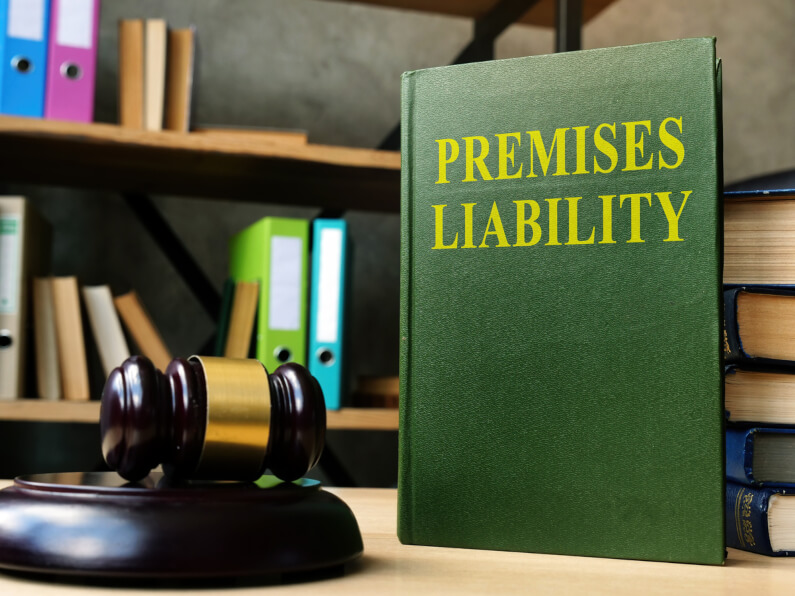Pennsylvania law requires that the party exercising control over a premise (i.e., the landlord, a store owner, a resident, etc.) must maintain said premises in a reasonably safe condition, and, failing that, must give those who are coming onto the premises adequate warning of the unsafe conditions that they know or should know exist. Failure to do so will constitute negligence under Pennsylvania law and will expose the defendant to liability. A plaintiff who is injured by an unsafe condition of the property — a dangerous hazard — without fair warning is therefore entitled to recover damages to compensate them for their injuries.
Unsafe Property Conditions Can Lead to Injuries
There are a large variety of unsafe conditions that can expose Bethlehem premises entrants to an unreasonable risk of injury. These conditions include but are not necessarily limited, to:
- Standing liquid slip-and-fall hazards
- Falling hazards, such as unguarded pits
- Inadequate security
- Inadequate lighting
- Tripping hazards
- Building injury hazards, such as a broken window or poorly-maintained stairs
- Conditions of property that do not meet safety codes
- And more.
Importantly, the person or entity that controls the given premises is not required to correct open and obvious hazards. For example, suppose that you enter onto a seaside property and there is a large cliff leading into the ocean. This cliff represents a serious falling hazard, but is clearly visible and is obvious to any reasonable person who enters upon the property. If you injure yourself by falling from the cliff, you will likely not be able to recover damages on the basis that the danger could have been avoided.
Not all dangerous and unsafe conditions of the property are known to the defendant — still, there mere fact that the defendant “did not know” is not a liability shield. Pennsylvania law allows for a plaintiff to hold a defendant liable for hazards that the defendant knew or should have known existed. For example, if there is a pool of water standing in the aisle of a Bethlehem store, and neither the storeowner nor any of the employees are aware of the slip-and-fall hazard, that does not shield the storeowner from liability — if a reasonable inspection would have revealed the hazard, then the defendant store owner could be held liable.
Our Bethlehem Premises Liability Attorney Explains How “Timeliness” Can Impact Your Claim
Timeliness is a challenging concept in premises liability, as it crisscrosses a number of different principles.
Property owners have a responsibility to inspect their property with reasonable frequency so as to discover defects and hazards early enough to correct them (or to warn others). They must take action within a reasonable time period, before visitors are exposed to the risk of harm.
Whether the defendant acted in a timely manner is dependent on the circumstances, and a number of factors exert considerable influence: industry standards, the volume of customers, obviousness of the hazard, etc.
For example, suppose that you are injured in a trip-and-fall accident on the entrance stairs at the defendant’s retail store. Further investigation reveals that the stairs were chipped and uneven and that this presented a serious risk of injury to visitors. Given the location of the hazard (the entrance!), the likelihood that visitors would come upon the hazard, and the obviousness of the damage, the defendant’s liability seems clear.
What if the chipping damage was caused just five minutes prior to the trip-and-fall injury?
At that point, the case becomes quite a bit more complicated. It would be unreasonable to impose an inspection duty on the property owner that required them to inspect their premises every five minutes. The frequency of “reasonable” inspections will vary depending on the industry, too. In a retail space, expert testimony may reveal that a “once an hour” frequency is sufficient. If the facts reveal that your injury was caused by a hazard that was created between inspections, then the store owner cannot be held liable, unless they somehow knew about the hazard and failed to correct it.
Schedule a Free Consultation With a Bethlehem Premises Liability Attorney Today
If you have suffered an injury in a premises liability accident — such as a slip-and-fall — due to the fault of another, then you may be entitled to recover damages under Pennsylvania law. Premises liability claims are incredibly varied and can quickly become complicated if the facts of the case are called into question and if there are multiple defendants, each attempting to disclaim liability. For example, a plaintiff injured in a slip-and-fall accident involving a puddle of standing liquid may find that their claims are aggressively disputed on multiple bases, including the plaintiff’s own negligence in failing to avoid the hazard, and the defendant’s assertion that they exercised reasonable care in inspecting and maintaining the property.
To maximize your chance of obtaining a favorable outcome in litigation, it’s important that you work with experienced attorneys who have a successful track record in handling premises liability claims. Here at Drake, Hileman & Davis, PC, our premises liability attorneys have secured substantial compensation for our clients in numerous premises liability lawsuits (in a recent slip-and-fall lawsuit, for example, our attorneys negotiated a nearly $200k settlement).
Call (888) 777-7098 to schedule a free consultation with a Bethlehem premises liability attorney today.


